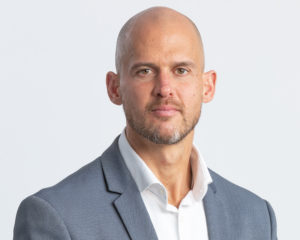Steven Amey, Discovery Invest
“The world as we once knew has changed. To what degree you may ask? This all depends on how old you are”

If you are a Baby Boomer, aged 57 to 75 years, you have witnessed the exponential change over your lifetime. Some of the greatest innovations 70 years ago were the floppy disk and portable cassette player. Gen X’s, aged 41 – 56 years, have too experienced great change, you will remember in 1983 Motorola introduced the first ever handheld cellphone, while the much talked about Millennial generation, those between the ages of 25 and 40, are more accustomed to the rapid pace of transformation and constant innovation. This generation is driving change at a rapid rate, they have very different consumption habits, behaviours, and views. Then we have the newest generation, Gen Z, those between the ages of 9 and 24 who sees the world through a totally different lens, technology is something they have grown up with from a very young age. Being exposed to various cultural dynamics, thoughts, and opinions, through various social media platforms has manifested in this generation being shaped and influenced by several forces.
All this change has had a significant impact on our ability to plan, parent and make sense of it all.
From a political and economic perspective, the world is more connected than ever before. Climate change has become a major concern, with many global leaders working tirelessly to save the environment through various initiatives, such as achieving carbon neutrality and net zero emissions within the foreseeable future. Some of the world’s largest asset managers have launched SRI funds to contribute positively to the world we live in – these funds pay very careful attention to the Environmental, Social and Governance policies of the underlying companies they choose to invest in. These funds continue to grow in popularity and at the end of 2020, the sector had grown to more than $150bn.
I would be remiss not to reflect on the global disruption, devastation and heartache caused by Covid-19, the worst pandemic experienced since the Spanish Flu of 1918. Many have lost loved ones or known of those who have, many have contracted the virus or been fortunate enough to narrowly escape its dreadful claws and although hidden, many bear the scars of mental health issues.
As a whole, the human race has immense tenacity and resilience. We have adapted well to our new world – working from home where online platforms such as Zoom, CISCO and Teams are now part of our everyday lexicon, once unheard of, now commonly utilised to communicate and engage. Through it all we have all learned difficult and valuable lessons, be these, the importance of hygiene, how fragile life is, not to take things for granted and how to work more efficiently – we have all learned something.
With all the change and complexity, it’s common to lose perspective, make inappropriate decisions and have emotions and behavioral biases cloud one’s judgement. Now more than ever, experienced, and qualified Financial Advisors are required to provide the necessary guidance to help people attain financial freedom.
Financial Advisors play an evergreen role in rendering sound financial advice as you travel through life. The role of the financial advisor has changed over the decades though. In the 1990’s, Financial Advisors focused largely on addressing single needs, with this changed in the early 2000’s to a Financial Advisor who focused on addressing their clients’ needs more holistically. Today we find the emergence of Wealth Managers and the incorporation of financial mentorship and coaching, addressing the psyche of the investor, with a focus on behavioral finance – all made easier through technology and the ability to interact more frequently and efficiently.
Financial planning in partnership with a financial adviser can make the world of difference. They play many roles, from implementing a holistic financial plan, individually tailored to their clients’ needs to the ability of understanding generational dynamics and providing appropriate advice to pointing out blind spots and differentiating between what can and can’t be controlled.
As complexity and change are inevitable rudiments of life, you are better prepared and less vulnerable when partnering an experienced and qualified financial planner and coach, irrespective of how wealthy you are.


